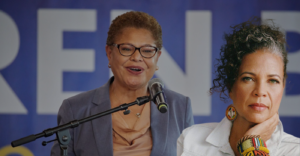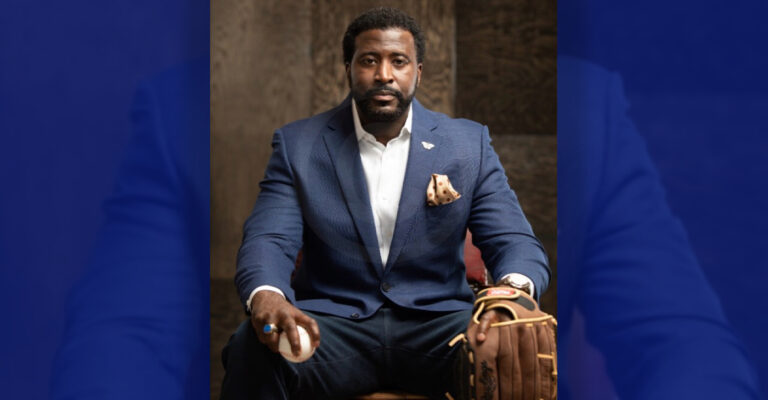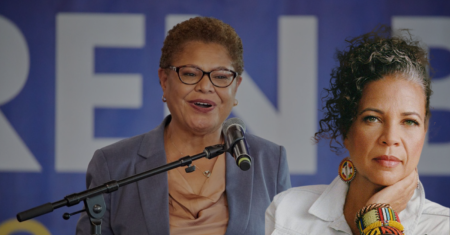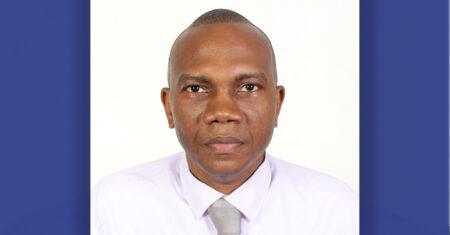By D. Kevin McNeir
Special to the AFRO
kmcneir@afro.com
In 1990, Jimmie C. Gardner, now 59, was a member of the Chicago Cubs Minor League team in Charleston, W.Va., pursuing his lifelong dream of playing professional baseball. But after two elderly White women falsely accused him of sexual assault and robbery, he was arrested, convicted and sentenced to 110 years in prison.
After serving 27 years in prison for a crime he did not commit, Gardner’s conviction was overturned – one of more than 140 cases in which the state relied on falsified forensic evidence testimony by the chief serologist to secure a conviction.
The U.S. District Court for the Southern District of West Virginia, while overturning the conviction, said Gardner’s conviction was “not only a total miscarriage of justice,” but that he “had been held in legal purgatory for 27 years.”
In 2023, the Dawson, Ga., native found himself again accused, arrested and put on house arrest for 17 months before being exonerated after a witness retracted her statement.
Gardner said his faith in God and the support of his family and friends have made him stronger, convincing him that he needed to do something to help others who have undergone or continue to face similar experiences of injustice.
“I was given a second chance twice and I’m grateful, but I never allowed it to make me bitter,” he said. “Being in prison for so long taught me patience and I realized that I had to forgive those who knowingly sought my conviction. That wasn’t easy, but I knew that anger, like cancer, would only rot and destroy me from within if I allowed it.”
Today, Gardner is a highly sought after motivational speaker who shares his testimony in prisons, at churches, and at business meetings across the U.S. He has also formed a non-profit, Gardner House LLC, as a means of providing support and resources to others wrongfully trapped within the prison industrial complex.
“I knew that I had to sound the alarm because it’s clear to me that America does not want Black men to succeed,” he said. “I see it as an attack on Blackness and we need to be more aware so we can fight the evil forces that seek our demise. The success we achieved during the Civil Rights Movement now stands in jeopardy and it’s not by chance but by design.”
Gardner said he has been fortunate to have the financial resources and other means of support to finally overcome the injustice he faced. But others are less fortunate.
History illustrates the inordinate examples of injustice faced by Blacks
Black men are disproportionately affected by false accusations and wrongful convictions in the U.S. justice system, facing higher rates of police misconduct, racial bias in charging and sentencing, and wrongful convictions for drug crimes and murder compared to their White counterparts.
Historical examples, like the Scottsboro Boys and the case of Ronnie Long, illustrate the devastating impact of racial bias, which can be exacerbated by factors such as faulty eyewitness identifications, prosecutorial misconduct and inadequate legal representation.
A report by the National Registry of Exonerations found that Black individuals are about seven times more likely to be wrongfully convicted of serious crimes than White people.

Jimmie C. Gardner (left), a former Chicago Cubs Minor League standout, has established a foundation to support those who, like him, were wrongfully convicted and eventually exonerated. Gardner, pictured with his wife, federal Judge Leslie Abrams Gardner, spent 27 years behind bars because of false testimony. (Photo courtesy Jimmie C. Gardner)
Gardner said he hopes his foundation will support efforts led by organizations like the Innocence Project (http://www.onnocenceproject.org) that have helped to free or exonerate people since 1992, nearly 60 percent of whom are Black.
“It cost me more than $1 million to gain my release,” he said. “I think a lot of it had to do with my family, specifically my wife, the Honorable Judge Leslie Abrams Gardner being the chief U.S. district judge for the Middle District of Georgia, and my sister-in-law, former Georgia Congresswoman Stacey Abrams, who continues to fight against voter suppression.
“But I’m still here – we’re still here. And no matter how far you fall, you can always get back up. Blacks stand on the shoulders of our ancestors who achieved greatness despite the odds against them. It’s my duty to give back and to lend a hand for the next generation.”







